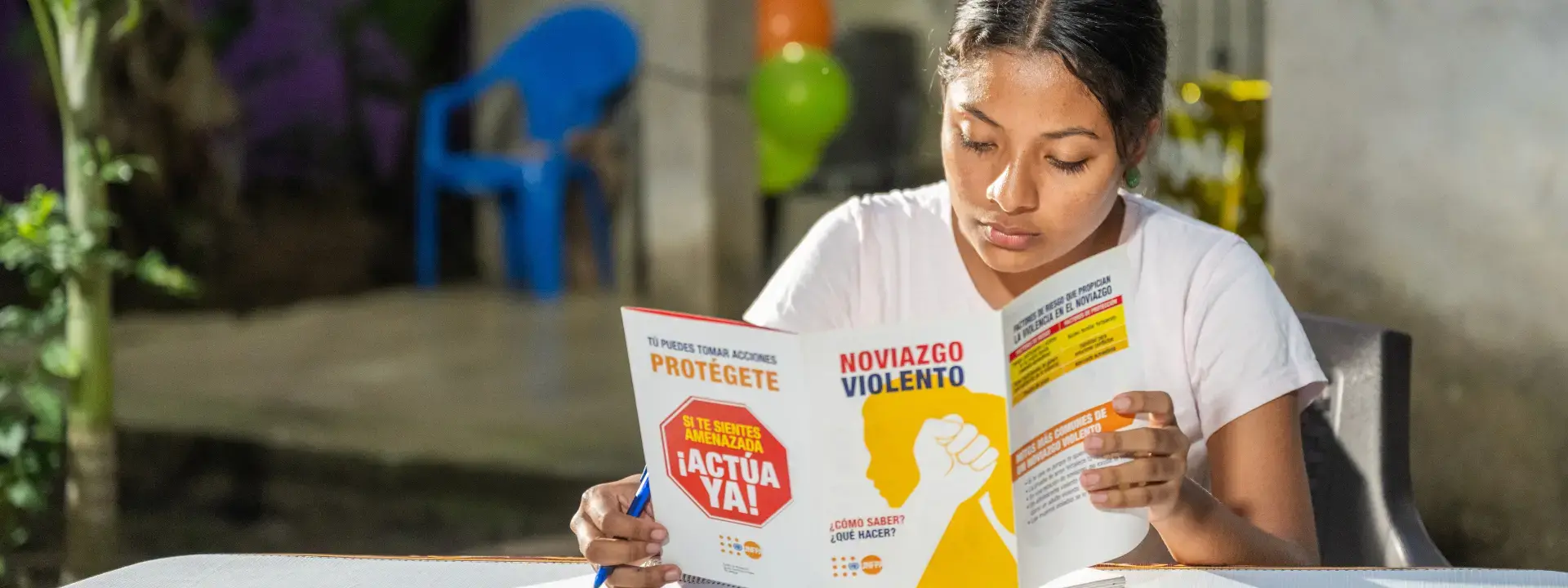Eradicating Gender-Based Violence and Harmful Practices Against Women and Girls
Gender-Based Violence (GBV) is a global pandemic affecting millions of women, eroding their dignity, freedom, and autonomy. This violence remains a widespread and devastating problem. According to the World Health Organization (WHO), nearly 736 million women (or one in three) suffer physical or sexual violence inflicted by an intimate partner or sexual assault by others. These figures have remained stable over the most recent decade (WHO 2021).
Both the 1993 United Nations Declaration and the 1994 Convention of Belém do Pará conceptualize gender-based violence, recognizing it as a human rights violation, a public health issue, and a social justice problem. It is largely influenced by the subordinate social, economic, and legal status of women in many settings.
Extreme violence against women is known as femicide/feminicide. Latin America and the Caribbean are home to 14 of the 25 countries with the highest numbers of femicides/feminicides globally. The most recent figures from the ECLAC Gender Equality Observatory report at least 4,640 cases of femicide across 18 Latin American and 6 Caribbean countries in 2019 alone. The highest femicide rates per 100,000 women are recorded in Honduras (6.2), El Salvador (3.3), the Dominican Republic (2.7), and the Plurinational State of Bolivia (2.1).
One of the most prevalent yet often invisible manifestations of gender-based violence is child marriage and early unions (CMEU). This harmful practice persists worldwide and in Latin America. The region has seen stagnation, with no reduction in the last 25 years; 1 in 4 adolescents marry or unite before the age of 18. CMEU is a violation of human rights that causes irreversible damage to girls' and adolescents' lives, health, sexual and reproductive health, and education. It also has detrimental effects on their families, communities, and impacts the sustainable development of their countries.
Transformative Results to End Gender-Based Violence
Sustainable Development Goal 5 (SDG5) includes targets to eliminate all forms of violence against women and girls as a necessary condition for closing gaps in inequalities and discrimination. UNFPA contributes to achieving SDG 5 and the 2030 Agenda by ensuring multisectoral, integrated, and quality services for women experiencing violence. We also promote prevention actions and the transformation of social gender norms, with an intersectional approach and a priority strategy to "Leave No One Behind," fostering close collaboration with civil society organizations of adolescents and youth, indigenous women, Afro-descendant women, women with disabilities, and the LGBTI collective.
Our Programs
1. Essential Services Program for Women and Girls Experiencing Violence
The Essential Services Program introduces components vital to a multisectoral response for women and girls. Its goal is to guarantee their rights, break the recurring cycle of violence, and provide care centered on their needs for health, access to justice, social services, protection, and safety. It also aims to reduce the losses experienced by women, families, and communities due to violent situations.
2. Prevention and Transformation of Social Gender Norms
UNFPA has initiated a process to generate evidence on what works and what doesn't in GBV prevention. This evidence will guide policy dialogue toward more effective GBV prevention strategies. We also strengthen work on masculinities and the involvement of men, youth, and adolescents to deconstruct toxic masculinities and promote respectful, violence-free masculinities. Finally, UNFPA promotes comprehensive sexuality education processes both in and out of school as an accelerator for GBV prevention and an effective promoter in transforming social gender norms.
3. Challenging Harmful Practices Against Women and Girls
Raising awareness about harmful practices against girls, drawing attention to issues that harm and erode the lives of girls and adolescents, such as Child Marriage and Early Unions (CMEU), is a priority for UNFPA. In an inter-agency effort, alongside UNICEF and UN Women, we are working on a strategy against CMEU, strengthening a network of allies with intergovernmental and civil society organizations, and implementing comprehensive intervention models in countries to eliminate these harmful practices.
4. Gender-Based Violence and COVID-19
In response to GBV in the context of COVID-19, UNFPA has developed tools to adapt essential GBV care and response services to remote formats. We have distributed thousands of dignity kits to women and promoted safe spaces, especially for women in situations of risk and vulnerability, such as migrant women and those in emergency situations.
5. Only with Strong Strategic Alliances Can We Eliminate GBV
UNFPA works tirelessly as a facilitator, fostering a close relationship between the public sector, private sector, and civil society organizations. This is based on the principle that all women and girls must be treated with dignity and respect.
Initiatives
Publications and Resources
UNFPA's Response to Gender-Based Violence in Latin America and the Caribbean in 2020. Publication Date: 2021
Essential Services Community of Practice. Publication Date: 2020
State Capacities and Service Gaps in Essential Services for Women and Girls Experiencing Violence. Publication Date: 2020
Technical Guide for Remote Services: Specialized Psychosocial Care for Survivors of Gender-Based Violence. Publication Date: 2021
Report: Promising Practices in Responding to Violence Against Girls and Women with Disabilities. Publication Date: 2021
Executive Summary - Promising Practices in Responding to Violence Against Girls and Women with Disabilities. English and Spanish. Publication Date: 2021
Resource - Promising Practices for Access to Prevention and Care Services for Violence Against Girls and Women with Disabilities in Latin America and the Hispanic Caribbean. Publication Date: 2021
Resource - Promising Practices for Access to Justice for Girls and Women with Disabilities in Latin America and the Hispanic Caribbean. Publication Date: 2021
Resource - Promising Practices for Policy Advocacy on Violence Against Girls and Women with Disabilities in Latin America and the Hispanic Caribbean. Publication Date: 2021


